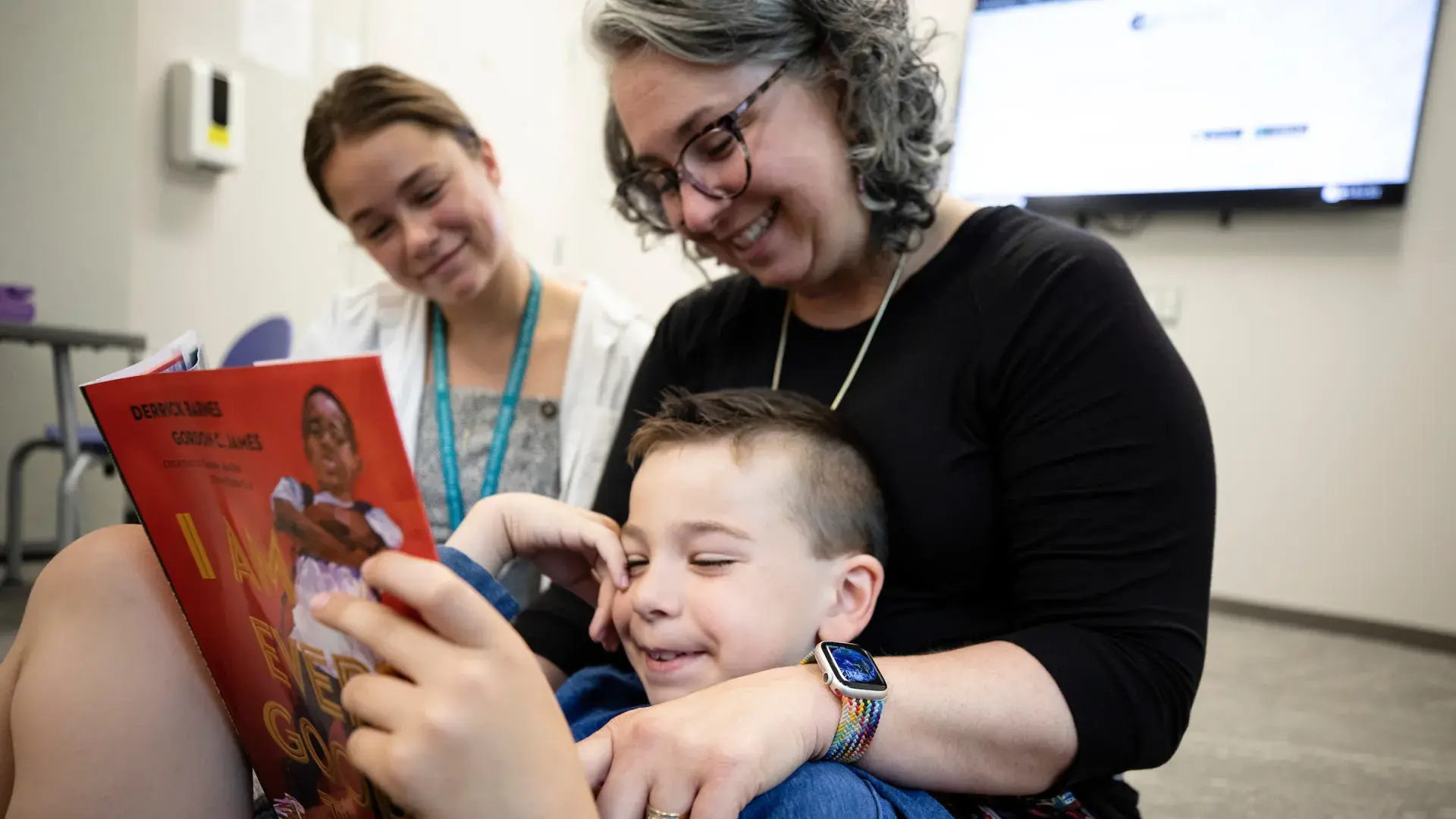
Dr. Tiffany Hogan and her SAiL Lab team aim to implement a better way for schools to identify students more quickly in need and provide ways to assist them
If Tiffany Hogan has her way, Boston Public Schools would mimic the world of medicine.
Go to any hospital and the diagnoses and protocols for care are consistent. But when it comes to special education, things get murky and aren’t always transparent.
“We’re trying to pull from what medicine has done well,” said Hogan, director of the Speech and Language Literacy Lab (SAiL) and speech-language pathology researcher who was approached by the Boston school district to help create a more effective process for children who have learning disabilities. “Medicine has a lot of clear protocols. So, if you see Doctor A, what you’re told shouldn't be much different than what Doctor B tells you. There’s no reason we can’t have that in education.”
Hogan is a national expert in implementation science, which promotes using evidence-based practice and collaboration to improve classroom learning. She recently began working formally with BPS to find a way to take research into children’s learning disabilities and bring solutions seamlessly – and quickly - into the classroom while keeping parents in the loop.
There are approximately 3,000 students in the Boston Public Schools who have specific learning disabilities. Hogan’s work with the district is being funded by a major grant she, the Center for Reading Research, and the University of Virginia were awarded that’s aimed at converting discoveries into faster solutions for students, teachers, and parents. The Boston Public School district is working solely with Hogan and the SAiL team.
“Our goal is to create something that's more consistent across schools and transparent to parents and to the public,” said Hogan. “It's not easy to understand - there's so much jargon. We want to make it truly clear for parents and everyone involved. ‘This is our process. If a child is struggling, here's what we would do. Here's the team-based process.’”
A patchwork of approaches is utilized nationwide to varying degrees of success. Typically, however, schools consistently under-identify, over-identify, or misidentify students with learning disabilities, especially those from historically marginalized communities.
Hogan and her team want to change that with two key tools:
- A multidimensional assessment to help schools determine their effectiveness in identifying and helping students who have learning disabilities, and provide them strategies for improvement.
- A guide to teach teachers the best scientifically proven ways of identifying and supporting children with learning disabilities
“Educators need up-to-date knowledge to support children and we are excited to continue to co-create, with BPS, high-quality professional learning opportunities and evidence-based resources,” said Hogan. “We, as the scientists, are vetting materials that have been created for educators and then we’ll work with them to make sure the resources are appropriate for their system and packaged in a format they can use.”
When Hogan and her team are finished, she expects Boston parents will see an immediate difference.
“Ideally, what they'll see is a more consistent, clear, and transparent process to support all children in their literacy skills. Right now, large school systems face many barriers to supporting students.” noted Hogan, who says BPS deserves a lot of credit for confronting these barriers. “That BPS is really putting the time and effort to focus on this and do it in a systematic way is fantastic.”
Hogan is confident her work with BPS can be scaled across the country for two reasons: Boston’s diversity mimics that of the nation and it’s a large and intricate district.
“I wouldn't want to create a toolkit for districts across the United States based on a district that wasn’t very complex and diverse,” said Hogan. “I want to be in a complicated system, because then we can learn that high level of complexity, and everyone else can work from it.
Do you have a story the Office of Strategic Communications should know about? If so, let us know.
